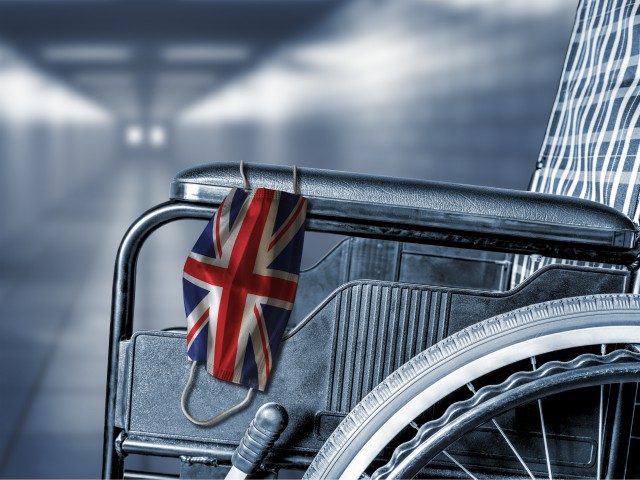The UK’s care watchdog has heard evidence that NHS doctors enforced ‘do not attempt cardiopulmonary resuscitation’ (DNACPR) orders on care home patients during the coronavirus wave, admitting the decisions could have caused avoidable deaths.
The Care and Quality Commission (CQC) initiated an investigation in October after concerns were raised that doctors and GP surgeries were ordering blanket DNACPRs on elderly people in care homes and the disabled in case they caught the Chinese coronavirus.
The CQC said in its interim report published on Wednesday that complaints related to DNACPRs had increased from March to September — during the so-called ‘first wave’ of coronavirus — claiming that orders were being put in place without the person or the family’s consultation.
“There is evidence of unacceptable and inappropriate DNACPRs being made at the start of the pandemic,” the report said, however, warning that months after the media began reporting claims of misuse by patients and family members that “It is possible that in some cases inappropriate DNACPRs remain in place.”
In some cases, families were told their loved ones had consented, but there were questions over whether this was “informed consent” due to issues such as deafness, the resident not being able to speak English, or where families had had discussions with the resident previously suggesting other wishes.
The report also found complaints related to orders being placed “on numerous people routinely”.
“For example, one [witness] told us the doctor on call had advised care home staff that if the older people in their care contracted COVID-19, they would have a DNACPR put in place. Another said doctors were refusing to visit a care home because they had had two residents die from COVID-19. Care staff were asked to take observations that they were not trained for, and all residents had a DNACPR in place,” the report found.
There were also complaints that when DNACPRs were put in place, that there were delays in care, such as calling doctors or ambulances, with some patients saying they were pressured into agreeing to stay at home and not go to hospital if they contracted coronavirus.
Stillbirths Nearly Double During UK’s First Lockdown https://t.co/c625tKd6mj
— Breitbart London (@BreitbartLondon) November 3, 2020
Some 34 per cent of people working in health or social care felt “under pressure to put DNACPRs in place without involving the person”, the interim report said. Some care homes and facilities that provide services to those with learning disabilities had also “received instructions from GPs to place blanket DNACPRs on people in their care”.
In remarks that highlighted denying care to ill patients may have cost lives, the watchdog said: “The blanket and inappropriate use of DNACPR and poor individual clinical decisionmaking must be seen in the context of decisions and steps that limit older and disabled people’s access to hospital, including to critical care, for necessary treatment for COVID-19 and other conditions.
“This could have had an impact, including potentially avoidable death, on older people and disabled people living in care homes, including those with physical and sensory impairments, people with a learning disability or cognitive impairments such as dementia.”
Highlighting a repeated government refrain from early on in the pandemic, the report said that stakeholders in the review — such as charities and other watchdogs — observed that there might have been a ‘misinterpretation’ over the “protect the NHS” message, which may have contributed to doctors deciding to remove life-saving interventions from vulnerable people’s care plans in order to avoid a burden on the service.
A report from last month revealed that there were twice as many stillbirths during the height of the coronavirus outbreak compare with the same period last year. The president of the Royal College of Obstetricians and Gynaecologists (RCOG) suggested that it could have been due to women feeling discouraged from seeking medical help because they did not want to “burden the NHS”.
The Care and Quality Commission will release its full report on the misuse of do-not-resuscitate orders in February 2021.
‘Protect the NHS’ Message that Scared Away Patients Could Contribute to Extra Deaths: Report https://t.co/I1ioy3QkhB
— Breitbart London (@BreitbartLondon) October 19, 2020

COMMENTS
Please let us know if you're having issues with commenting.